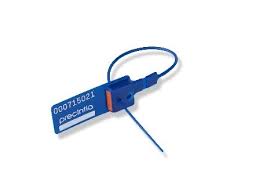ISO 17712 is an internationally recognized standard that sets forth requirements for the mechanical strength and tamper resistance of seals used on shipping containers. These seals are crucial for maintaining the security and integrity of goods during transit, helping to prevent unauthorized access and tampering. Compliance with ISO 17712 ensures that these seals meet the necessary quality and security standards. For businesses involved in international trade and logistics, ISO 17712 testing services are essential to ensure that their shipments meet global security standards.
ISO 17712 Testing Services in the Philippines
The Philippines, being a key player in global trade and logistics, offers various ISO 17712 testing services to meet the needs of businesses and industries. These services are typically provided by accredited testing laboratories and organizations that are equipped with the necessary expertise and equipment to conduct comprehensive testing.
Accredited Testing Laboratories
In the Philippines, there are accredited testing laboratories that specialize in seal testing according to ISO 17712 standards. These laboratories are usually certified by national and international accreditation bodies, such as the Philippine Accreditation Bureau (PAB) and the International Accreditation Forum (IAF), ensuring their competence and compliance with international testing standards.
Testing Procedures
ISO 17712 testing involves various procedures to assess the mechanical strength and tamper resistance of seals. These tests include:
a. Tensile Strength Test: This test evaluates the maximum force a seal can withstand before breaking or being pulled apart. It ensures that the seals can resist tampering attempts effectively.
b. Shear Test: The shear test measures the resistance of the seals to lateral force, simulating attempts to cut or break the seal from its side.
c. Impact Test: This test assesses the seal’s ability to withstand impact and shock during handling and transportation without breaking or becoming dislodged.
d. Environmental Exposure Test: The environmental exposure test evaluates how the seals perform under various conditions like extreme temperatures, humidity, and exposure to UV radiation.
e. Corrosion Resistance Test: This test determines the seals’ resistance to corrosion, which is particularly important for maritime shipments exposed to saltwater.
Benefits of ISO 17712 Testing
Obtaining ISO 17712 certification for seals used on shipping containers offers several advantages for businesses involved in international trade:
a. Enhanced Security: ISO 17712-compliant seals provide a higher level of security for goods during transportation, reducing the risk of theft and tampering.
b. Regulatory Compliance: Many countries and international organizations require ISO 17712-compliant seals for cross-border shipments. Compliance ensures smooth customs clearance and avoids potential delays and penalties.
c. Reputation and Trust: ISO 17712 certification demonstrates a company’s commitment to security and quality, enhancing its reputation and building trust with customers and partners.
d. Reduced Insurance Costs: Some insurance providers offer lower premiums for shipments secured with ISO 17712-compliant seals, as it reduces the risk of cargo loss.
Conclusion
ISO 17712 testing services in the Philippines play a vital role in ensuring the security and integrity of goods during international transportation. Businesses engaged in global trade and logistics can benefit significantly from obtaining ISO 17712 certification for their shipping container seals. By partnering with accredited testing laboratories and adhering to ISO 17712 standards, companies can enhance their security measures, gain regulatory compliance, and build trust with stakeholders. It is essential for businesses to prioritize the integrity and security of their shipments to thrive in the competitive world of international trade.











